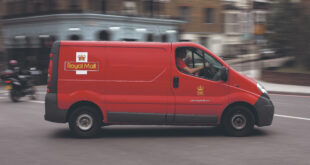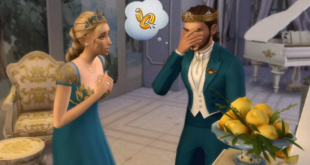OTTAWA — Prince Harry and his wife, Meghan, may have hoped that by relinquishing their official duties as members of the royal family and moving to Canada, they would escape the scrutiny of the British press.
But even before they have picked a permanent place to live in Canada, the couple has been followed by press photographers who use telephoto lenses and all possible methods, including subterfuge, to capture potentially valuable images of them in private moments for Britain’s tabloid press.
Now lawyers representing the couple, known as the Duke and Duchess of Sussex, have sent a letter to some British news outlets threatening legal action over the purchase and publication of photos of Meghan walking with her infant son, Archie, in a public park near a house the couple has rented in an exclusive suburb of Victoria, British Columbia.
The letter, addressed to the Daily Mail and The Sun tabloids, was sent by Schillings, a law firm that is also representing Meghan in a separate legal case against another British tabloid, the Mail on Sunday.
The lawyers say the photographs, taken while the duchess was walking the family’s dogs, were made by photographers hiding in bushes. The letter took special issue with the commentary around the pictures that suggested they had been taken with Meghan’s consent.
Other photographers, the letter said, have tried to take pictures of the couple through windows when they were inside the house in North Saanich, and some have set up camp outside the home. The letter also expressed concerns for the safety of the pair because of the way the paparazzi were driving.
After the letter was sent on Tuesday, both the Daily Mail and The Sun posted additional photos of Meghan’s walk in the park, mostly slight variations. The Mail also offered a video that, among other things, criticized Meghan’s baby holding technique and estimated the cost of her clothing.
The Mail did not respond to a request for comment about the letter. A spokeswoman for The Sun’s parent company, News Group, said she was unable to immediately comment.
The letter is a latest skirmish in a long-running privacy battle between the British royal family and the country’s press. Last year, Prince Harry compared the treatment of his wife by tabloids to the experience of his mother, Princess Diana, who was constantly followed by paparazzi particularly after her marriage to Prince Charles collapsed. She died in Paris in 1997, after her car crashed while trying to escape photographers.
Last weekend, the couple said they would drop all of their official royal duties, having announced that they intended to divide their time between Britain and Canada while no longer using British government money set aside for the royal family.
Unlike the British press, Canadian news media outlets generally avoid publishing photos of celebrities or politicians — including of Prime Minister Justin Trudeau — in private situations. The Times Colonist, the newspaper in Victoria, held back reporting that the Sussexes were in town for a Christmas holiday until it had ended.
“The separation of Harry and Meghan from the royal family is big news around the world,” Dave Obee, the newspaper’s editor and publisher wrote in column. “Their connection to our island is worthy of note, but their day-to-day existence here is not. Let them be.”
The owner of a water taxi service in North Saanich told a local television station that he refused to carry three British photographers out to the waterfront home rented by the duke and duchess.
“Hard to turn down business but most importantly I have to live with myself,” the taxi service owner, Miles Arsenault, said.
Recent coverage of their changed roles and move to Canada has been largely illustrated with photographs of their appearances at official events.
In Canada, where Prince Harry rejoined the duchess on Tuesday, privacy law is mostly a provincial matter.
David Elder, a privacy law specialist with Stikeman Elliott, said the couple could bring a lawsuit under British Columbia’s Privacy Act over photos taken without their consent. But he added that the legislation contains many exemptions intended for news media, as does Canada’s constitution, and that Canadian courts have generally ruled that people in public places and public figures have little expectation of privacy.
Any lawsuit by the couple in Canada, he said, “is unlikely to be a slam-dunk and, in fact, may be a difficult claim to make out successfully.”
Ian Austen reported from Ottawa, and Megan Specia from London.
Source link



